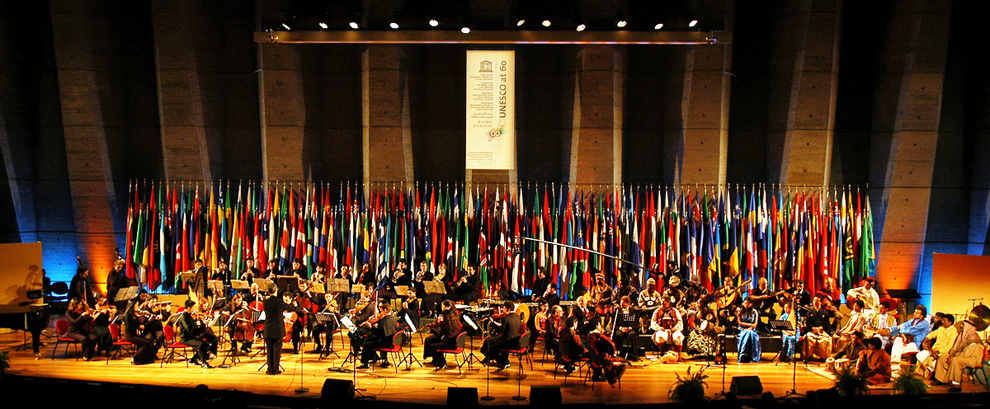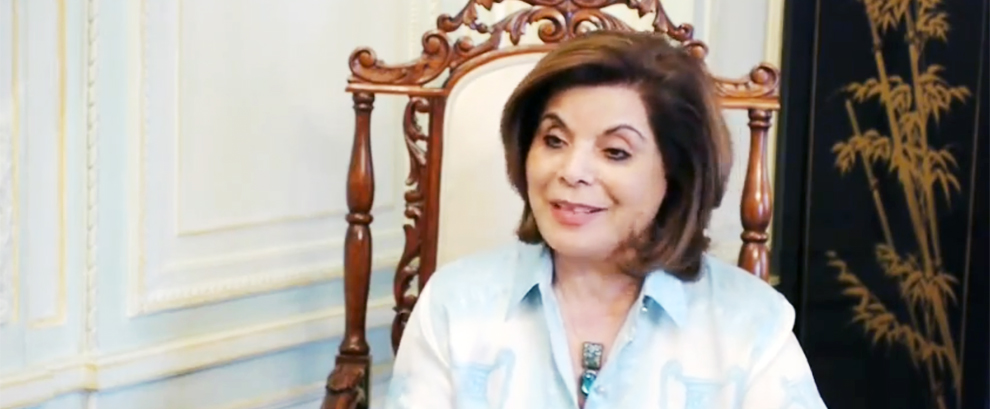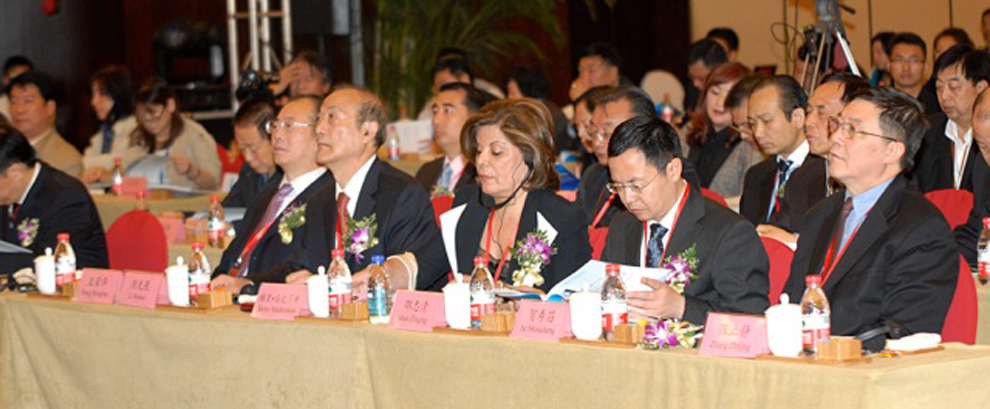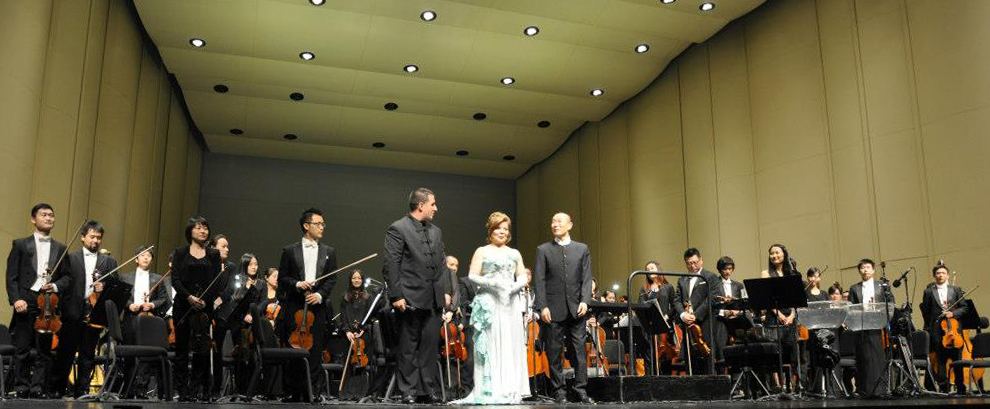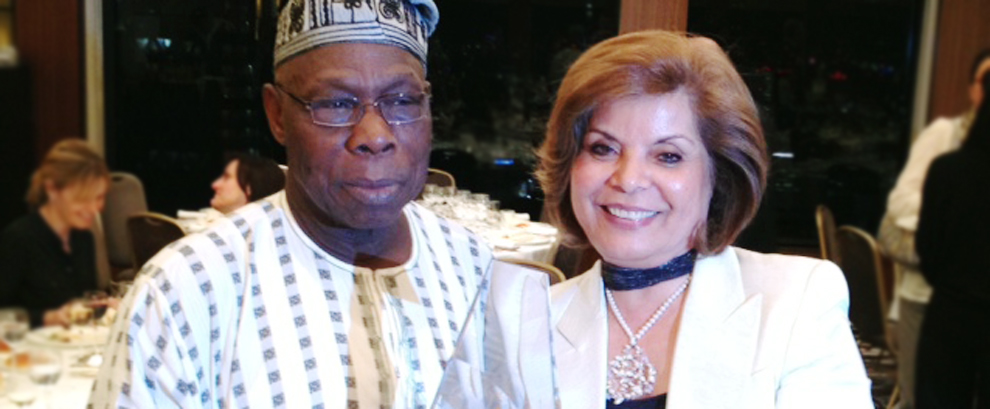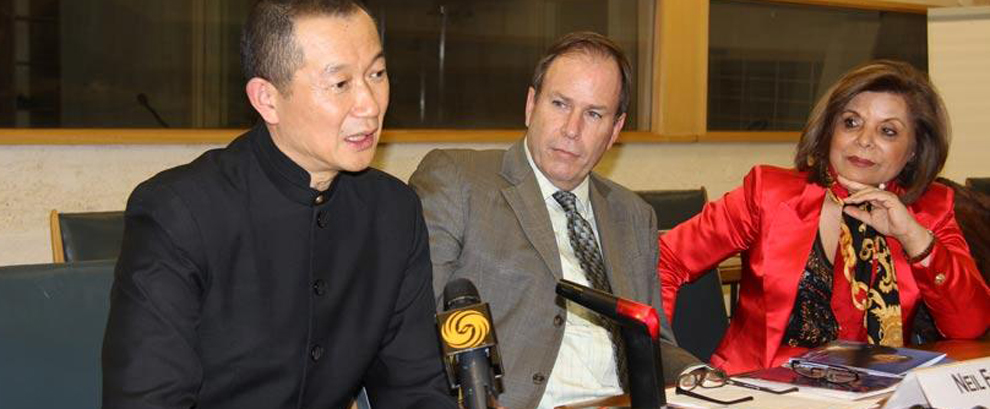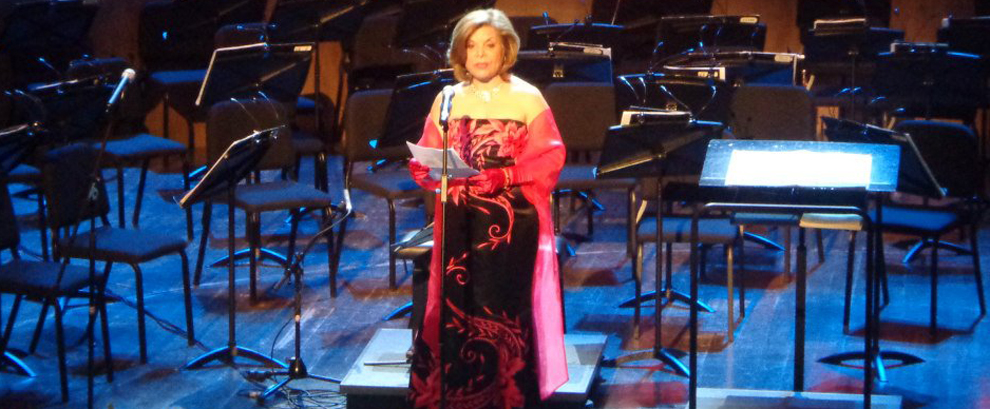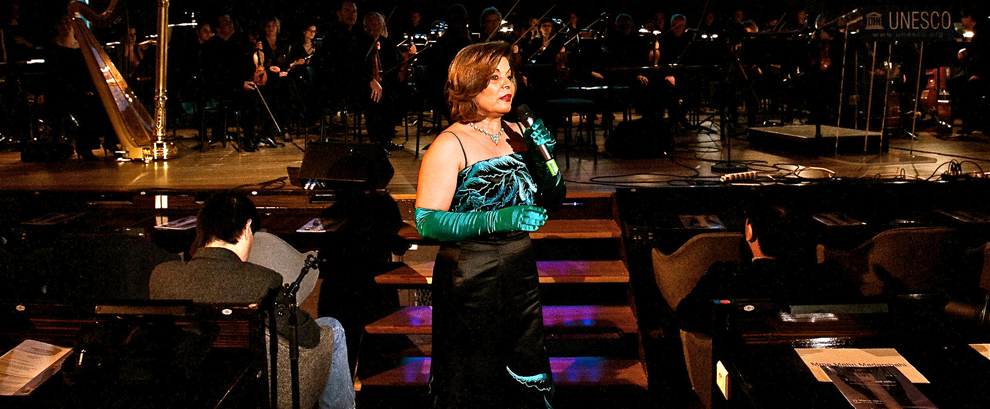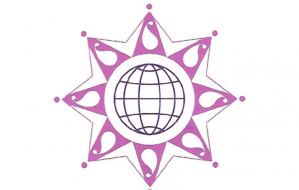
INTERNATIONAL FORUM
Women’s Role In Cross-Culture Dialogue
June 10, 2008 – Conference in Baku, Azerbaijan
By Mehri Madarshahi
DOWNLOAD PDF
Expanding the Role and Empowerment of Women
Let me begin by thanking the Heydar Aliyev Foundation for organizing this important Forum dealing with the “Role of Women in Cross Cultural Dialogue”. Being present at this important gathering gives me the pleasure of working together with such a prominent group of participants to exchange knowledge and views and to establish valuable contacts for achieving enhanced international understanding of how women’s voice can be heard more effectively in the context of cross-cultural dialogues. Indeed, women’s voice is and must be an essential element of every peace process and effort aimed at conflict resolution. Networking, building relationships and building bridges on a global scale are indeed the order of the day.
Our gathering here today, comes at a particularly critical and challenging time for our universe. We witness how the more vulnerable and weaker segment of society – in particular 50% of the world population representing women – is to an alarming degree becoming the victim and target of various aggressions and violations taking place around the world. We must sadly recognize how weak our voice has become at the negotiation tables.
I am, nevertheless, a great believer in the potential of tolerance and peace in human interaction which outweighs the propensity to engage in intolerance or war. I am equally a great believer that with dedication and commitment a better world can be built for future generations, conflicts can be resolved through peaceful means and respect and understanding forged among fellow men and women, especially those whom we perceive being different from us.
This is why today, as always, there is a continuous need for allowing women to bring to bear their positive and effective voice in promoting peace, the resolution and prevention of conflicts and the promotion of cross-cultural dialogue based on mutual respect and understanding.
Constituting more than half of the world population and being the mother or sister and wives of the other half, women can be the source of innovative and much needed approaches to peace building and preservation of our environment and living habitat. Justice, development and peace are inseparably linked. Peace without development and development without peace is not sustainable.
Women can contribute their insight and skills essential to peaceful coexistence for the betterment of human relations. In that context, the keyword here is equality. It requires that we develop respect and understanding for differences, be it towards the “haves” or “have–nots”, man or woman, black or white and any shade in between, our own culture and faith or those of others. We must foster awareness and seek to gauge avenues for collaboration within and outside of our communities. We all have an internal list of those we still don’t understand, let alone appreciate. We all have biases, even prejudices, toward specific groups. “Culture” is often at the root of communication challenges. Our culture influences how we approach problems, and how we participate in groups and in communities.
Culture is a complex concept, with many different definitions. But, simply put, “culture” refers to a group or community with which we share common experiences that shape the way we understand the world. It includes groups that we are born into, such as gender, race, or national origin. It also includes groups we join or become part of.
Our histories are a critical piece of our cultures. Historical experiences — whether of five years ago or of ten generations back –shape who we are. Knowledge of our history can help us understand ourselves and one another better. Exploring the ways in which various groups within our society have related to each other is key to opening channels for cross-cultural communication. As people from different cultural groups take on the exciting challenge of working together, cultural values sometimes conflict. We can misunderstand each other, and react in ways that can hinder what may otherwise be promising partnerships. Often times, we are not aware that culture is acting upon us. Sometimes, we are not even aware that we have cultural values or assumptions that are different from others.
Today, globalization, trade liberalization, the digital divide and new technological innovation have injected additional complexity. They profoundly have changed the reality we live in and helped marginalize vulnerable groups such as the elderly or particularly women even more than was the case before. Women already low in the scale of literacy, have become also disadvantaged in the dot.com world.
Therefore, long-term strategic needs of women must include a) social empowerment by tackling issues such as gender roles and relations within the family, girl’s education, health, literacy and the social image, b) economic empowerment by looking at impediments to women’s employment in the public and private sectors, encouraging micro- and small-scale enterprises through the provision of credit, training and encouraging female entrepreneurship. This entails looking at how to increase women’s economic participation rates, while reducing discriminatory hiring practices and helping women reconcile their work and family responsibilities These are crucial steps towards addressing gender gaps and empowerment of women and c)- political empowerment by encouraging them to take participatory roles in running the societies, exercising their voting rights and being provided with adequate chance to play active roles in decision making processes.
The quest for gender equality, dignity and a sustainable empowerment of women entails also a recognition of and respect for diversity. The commitment to worldwide gender equality constitutes an element of ‘unity in diversity’ when women as well as men of all continents, regardless of national boundaries and ethnic, linguistic, cultural, economic and political differences, are enjoined to assemble behind a shared vision. It is intolerable that at the dawn of the 21st century, women in many parts of the world still suffer from a lack equal opportunity in participating in the social, political and economic lives of societies. A recent report in Le Monde Diplomatique (May 2008) details the glaring lacunae and deficiencies even among European countries. According to the statistics presented, some 51.2 per cent of 255 million inhabitants in Europe are women. Only because of their sex, they do not enjoy the same rights and opportunities as the opposite sex. They are discriminated in all aspects of life, including that of opportunities of access in economic and political life. In France every three days a woman dies as a result of domestic violence. She faces more problems at work and earns 15 per cent less salary than her male colleagues for the same work. Women constitute three in four workers at the bottom of the pay scale, 8 out of 10 part-time workers and they constitute majority of unemployed; In general women earn 40% less retirement benefits than men. Extending the age of retirement to 67 as proposed by Denmark has also negatively impacted the financial security of women since they tend to leave the work places much earlier than their male colleagues. These are all against the principles of the EU Treaty of Rome adopted in 1957which stipulated he principle of equal pay for equal work regardless of gender.
Overcoming discrimination in many countries will be a tall order, as it will affect societal practices, traditions and perceptions. It requires adjustments in the juridical dispositions in many countries, such as the presently existing inequality between men and women in penal codes, property laws, access to credit or in the inheritance law or in the laws governing nationality.. Discrimination ? You bet !
Unacceptable ? I would say so. Any remedial action possible ? No –unless you begin the long march of challenging the laws of the land and then you may not see tangible results during your lifetime. Thus, as it seems that despite all spoken and written principals, women have a long way to go towards equality. In this journey, the creation of global networks of philanthropic foundations and private donors, that will responsibly share information, raise awareness and draw attention to issues of importance to women, seems more and more urgent. Moreover, further research on the structural root causes of a prevailing unwillingness in societies to address these unjustifiable inequalities also should be encouraged. Groups and forum discussions should focus and reflect on gender biases and cultural barriers to women’s advancement, particularly in traditional communities and sub-cultures.
In the quest for gender equality, role models drawn from all walks of life are as important as political aspirations and declarations. Regardless of their age, women must be induced to explore and express their individuality, as fear is the biggest obstacle in the development of each person.
Let us have a look at two unnoticed societal fields – music and sports – where inequalities persist especially in terms of management and decision-making authority. Not often do we find female managers in major opera houses or symphony orchestras – and yet women are arguably a majority of the audience and also of the artists and stars.
There are very few Beverly Sills around in the world. Likewise in the world of professional and competitive sports, we find few women represented in management positions in international associations or Olympic Committees, nationally and internationally, whether they involve female athletes or not. This unsatisfactory situation clearly must change.
In 2005, the world’s leaders participating in the World Summit recognized in their Outcome document that women’s progress is inextricably linked to progress of all humankind. They committed themselves to promote women’s equality and to eliminate pervasive gender discrimination by 2015 across a wide range of fields, including in primary and secondary education, property and housing rights, access to reproductive health, labor rights, and access to land resources, credit and technology. This will necessitate both the elimination of all forms of discrimination and violence against women and girls – in line with international conventions and norms, as set out in the UN Convention on the Elimination of Discrimination against Women (CEDAW) – and the promotion of significantly increased representation of women in public and private decision-making positions. It must be acknowledged that in virtually all regions, women occupy an increasingly larger share of positions and posts in the education and health sectors (entailing a “feminization of employment”), but they fall significantly short of a comparable representation in political decision-making positions. Countries like Norway or Spain are an exception to the rule – but then, their example may induce other countries to follow suit. Gender mainstreaming has been established as an effective tool to move towards these goals. In all countries and all sectors and societal activities, we must strive to translate words into action and give visibility to women.
Sustainable development, human rights and peace can only become a reality if women and men enjoy expanded and equal opportunities, choices and capabilities to live in freedom and dignity. Equality between men and women exists when both are able to share equally in the distribution of power and knowledge, have equal opportunities, rights and obligations in terms of work or income generation; are given equal access to education, opportunities throughout life and the possibility to develop their full potential and personal ambition.


